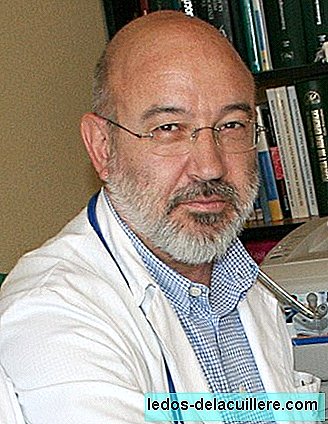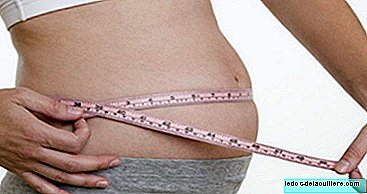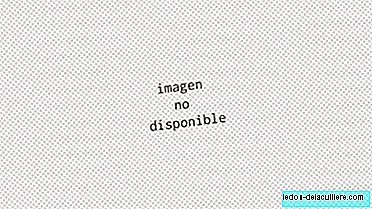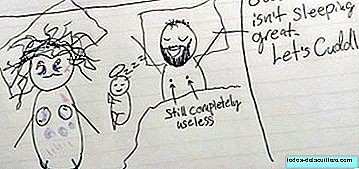
Breast milk, that whitish liquid that emanates from women's breasts, has been the food of babies for thousands of years and, interestingly, there are many things about it that we still do not know today.
The fault of this is the formula milk, which began to be used last century, just as the medicine progressed, displacing largely the natural milk feed that came to be considered of worse quality than the artificial one and making it have today to do a great job, both research, to learn more about breast milk, its operation and its properties, and education, to eradicate false myths from years ago that all they get is to help mothers stop breastfeeding or that the lactations are failed.
One of these myths is the one that says that the woman who breastfeeds can hardly take medication because, like everything she takes, it passes into the milk, the baby could suffer serious side effects. To talk about it We interview José María Paricio, member of the Breastfeeding Committee of the AEP and head of the Pediatrics Service of the Denia Hospital, former Marina Alta Hospital, which was part of the Initiative for the Humanization of Birth and Lactation Assistance (IHAN), author center of the well-known website www.e-lactancia.org, coordinated by Dr. Paricio and which has become an indispensable tool for all health professionals who try to promote, and above all respect, breastfeeding and even for Mothers trying to maintain breastfeeding despite the unfortunate opinions of some pediatricians, nurses or family doctors.
Am I right when I say that it is a myth to say that the woman who breastfeeds cannot barely take medication?
Absolutely. There is an erroneous conception of the breast as if it were an organ that concentrates the toxins of the organism in the milk, which is absolutely false: the female breast is a filter that purifies the best of the woman and converts it into milk.
So, could it be that many women who have stopped breastfeeding for starting a medication could have continued breastfeeding?
Indeed, many medications, or do not pass anything to milk, or do so in such small amounts that they will not harm the infant at all, or they are medications that infants can take and therefore devoid of important side effects. Only drugs of abuse, some medication rarely used and anticancer drugs are absolutely contraindicated during breastfeeding.
Have you ever met a woman who told you the same thing: "I would have followed, but I had to take X", and have you realized that I could have continued breastfeeding without problems? If so, have you informed him of this?
Of course, on many occasions, which is still unfortunate. If it has been a short time, they are still on time if they wish to “relate”: start breastfeeding again so that milk production resumes. If it is too late, it can be used for a subsequent breastfeeding of another child, or to inform family or friends.
What do you mean by "if they are on time"?
Well, “in time” is always there, what happens is that the longer the period of lactation interruption passes, the harder and longer it is also for the milk to return using methods of relactation (fundamentally to stimulate the breast a lot with putting of the frequent baby). Obviously, it may have been so long that it is no longer to be considered by the mother or the infant.
Have you encountered the opposite case: "I have not been able to deal with mine because I am breastfeeding" and have you seen that this woman could have taken the prescribed medication?
Unfortunately too. It is a mistake to leave a woman untreated without having made the effort to investigate whether or not such treatment is compatible with breastfeeding; as I have said, it is very likely that it will be: we will have left, for example, raging a nursing mother with a toothache for not knowing that paracetamol or ibuprofen are compatible with breastfeeding.
Is it true that they say that if a medication affects the mother's head, it sure affects the baby?
If you are referring to medication of the type of antidepressants or anxiolytics, it is completely false in some cases and false with nuances in others: almost all of the most commonly used antidepressants today have been proven that the passage through milk is zero or minimal and that do not affect the infant at all; Among the anxiolytics, which can cause sedation-numbness in the mother, you have to choose those that are removed more quickly and pass less to milk to prevent the infant from sleeping too much and may have problems.
And on the topic of anesthesia, can a woman who is breastfeeding be treated or operated? On occasion we have commented on Babies and more the case of a mother who had a filling without anesthesia ...
Any local anesthesia, including local anesthesia in the mouth and also loco-regional anesthesia and epidural and spinal anesthesia are compatible with breastfeeding: the anesthetic medicine passes tiny amounts into the blood (otherwise it would be dangerous for the same person). But it is that general anesthesia fortunately today are made with products that are removed so soon from the body (and nobody "counts his life" after an operation) that as soon as the woman wakes up, if she wishes, she can breastfeed.
The interview with José María Paricio It consists of a few more questions, so we'll continue with her tomorrow. I urge you to continue reading it then.












